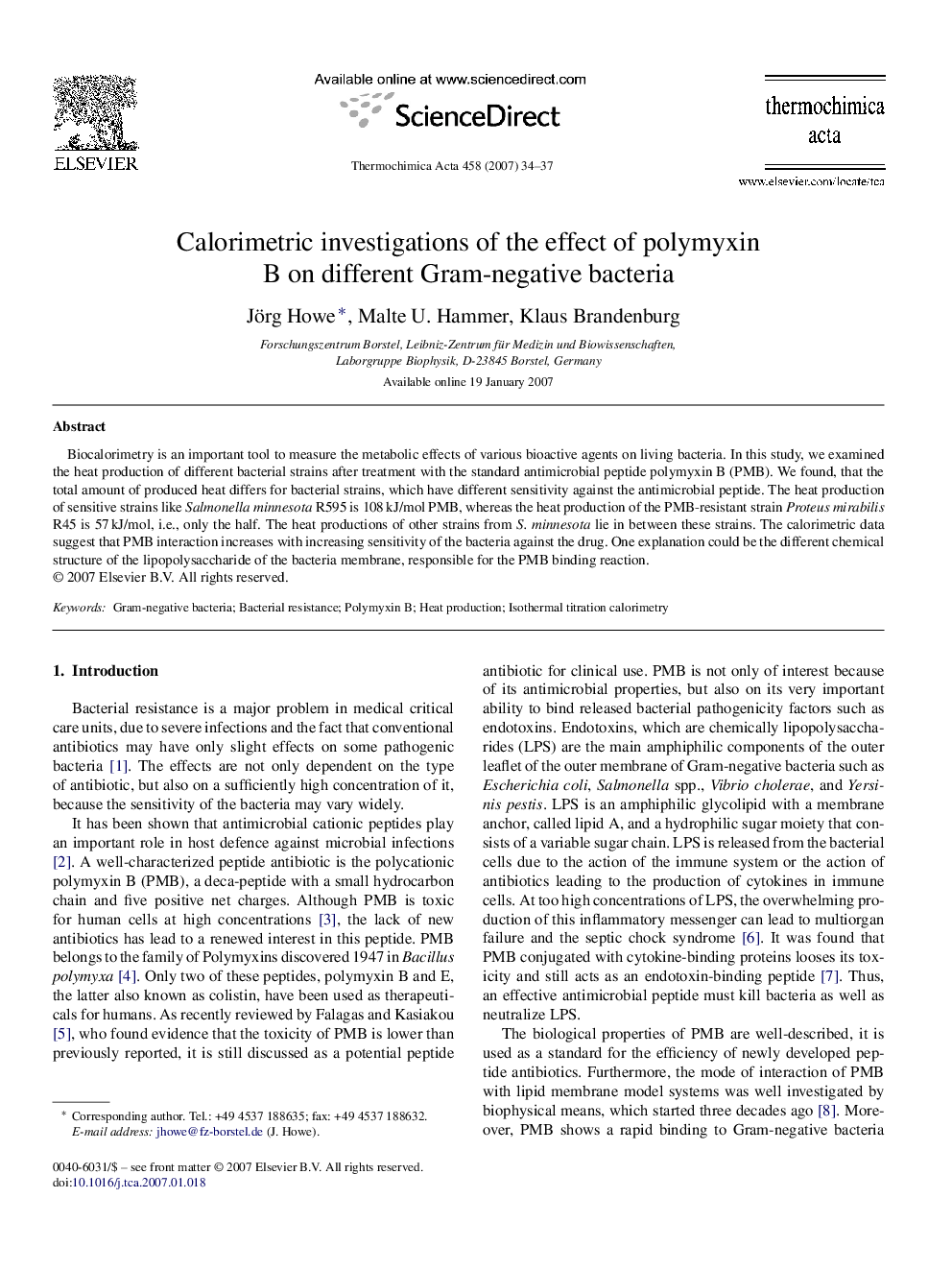| Article ID | Journal | Published Year | Pages | File Type |
|---|---|---|---|---|
| 675640 | Thermochimica Acta | 2007 | 4 Pages |
Abstract
Biocalorimetry is an important tool to measure the metabolic effects of various bioactive agents on living bacteria. In this study, we examined the heat production of different bacterial strains after treatment with the standard antimicrobial peptide polymyxin B (PMB). We found, that the total amount of produced heat differs for bacterial strains, which have different sensitivity against the antimicrobial peptide. The heat production of sensitive strains like Salmonella minnesota R595 is 108Â kJ/mol PMB, whereas the heat production of the PMB-resistant strain Proteus mirabilis R45 is 57Â kJ/mol, i.e., only the half. The heat productions of other strains from S. minnesota lie in between these strains. The calorimetric data suggest that PMB interaction increases with increasing sensitivity of the bacteria against the drug. One explanation could be the different chemical structure of the lipopolysaccharide of the bacteria membrane, responsible for the PMB binding reaction.
Keywords
Related Topics
Physical Sciences and Engineering
Chemical Engineering
Fluid Flow and Transfer Processes
Authors
Jörg Howe, Malte U. Hammer, Klaus Brandenburg,
